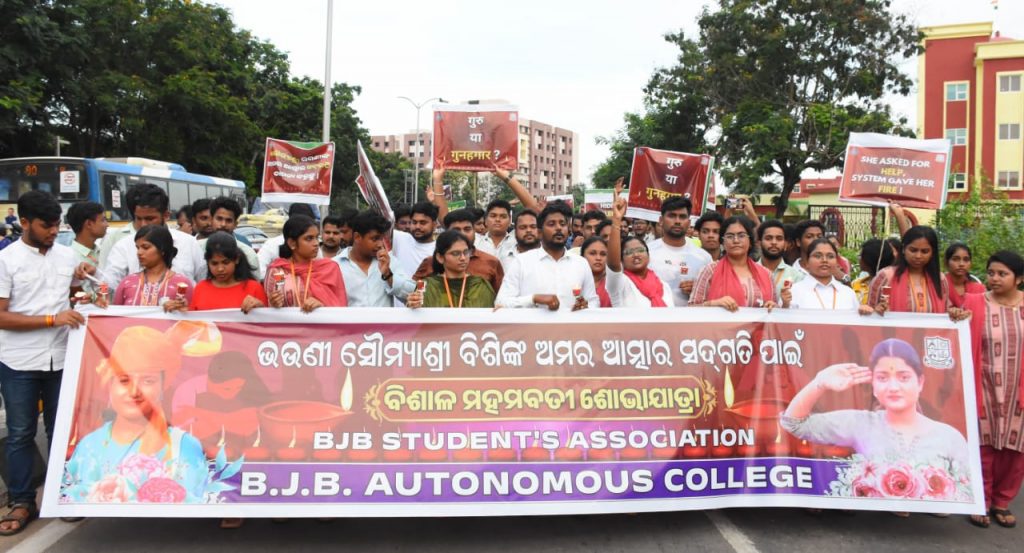By Arindam Ganguly, OP
Bhubaneswar: As the world observes World Su*cide Prevention Day Wednesday (Sept 10) with the theme “Changing the Narrative”, Odisha faces a sobering mental health crisis. Rising student suicides and recent high-profile tragedies have intensified calls for compassionate action, policy reform, and strengthened mental health support systems.
Between 2020 and February 2025, Odisha recorded 72 student su*cides across schools and colleges, according to the government. Reported causes include mental pressure, harassment, denial of mobile phone use, academic stress, and domestic conflicts.
The situation has worsened over the past two years. In 2023 alone, Odisha recorded 189 student su*cides—a staggering 58 per cent rise from 119 in 2021. While total suicides across the state slightly fell from 6,140 in 2022 to 5,989 in 2023, Odisha’s suicide rate of 13.3 per 100,000 remains above the national average.
Two high-profile tragedies—the death of a Nepalese student at KIIT University and the self-immolation of a girl at FM College, Balasore — serve as grim reminders of the urgent need for intervention. These incidents sparked widespread grief and outrage, highlighting the emotional burdens many young people silently endure.
Social activist Naba Kishore Pujari said factors such as failed relationships, bullying, or family conflicts can trigger severe emotional distress, particularly among young people.
Women’s activist Matrumayee Priyadarshini said college su*cides are a grave concern, with mental health struggles as the main trigger. Academic pressure, low self-worth, identity crises, and relationship issues often push students to the brink.
Mental health expert Amrit Pattojoshi said, “The recent student tragedies in Odisha are not isolated incidents but heartbreaking cries for help from youth who felt unseen and unsupported.” He added, “Su*cide is rarely caused by a single factor—it arises from layers of stress, including academic pressure, harassment, mental health challenges, and a profound sense of hopelessness. We must turn compassion into action by ensuring campuses have 24/7 support systems, trained listeners, and accessible counselling. The media should stop sensationalising deaths and instead highlight stories of survival.”
Joyeeta Roy, a woman entrepreneur and social media expert, said, “In today’s digital age, social media has made public validation feel more important than ever. People often share idealised versions of their lives, unknowingly fueling anxiety, depression, and low self-esteem.”
Student Srusti Mishra highlighted social media influence and lack of open communication as contributing factors. “We need to talk, listen, and love more—judgment-free,” she said, urging greater government accountability.
The crisis extends beyond students. Mental health issues are rising sharply among rural communities, including farmers, with two recent farmer su*cides in the state. Studies show 74 per cent of farmers experience depressive symptoms, and 31 per cent suffer severe depression. In response, the state is expanding Tele-MANAS helplines (14416 / 1800-891-4416), installing CCTV in schools, mandating Internal Complaints Committees, and conducting suicide prevention drives in colleges.
